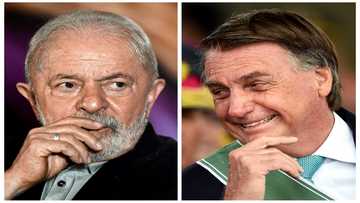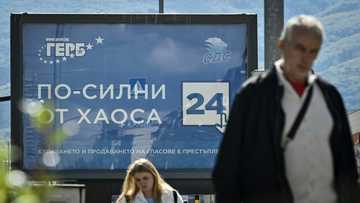In Brazil election, opinion polls the 'biggest loser'

Source: AFP
PAY ATTENTION: Сheck out news that is picked exactly for YOU ➡️ find “Recommended for you” block on the home page and enjoy!
Following a trend in recent years of underestimating voter support for Brexit and Donald Trump, opinion polls in Brazil were way off the mark for Sunday's first round of presidential elections.
Incumbent Jair Bolsonaro and many of his far-right allies mustered results much better than pollsters had predicted, catching analysts off guard and shocking supporters of his leftist rival Luiz Inacio Lula da Silva.
"The biggest loser (of Sunday's election) are all the polls," Latin America analyst Michael Shifter of the Inter-American Dialogue think tank told AFP.
What were the poll predictions?
Lula amassed 48 percent of the votes cast on Sunday -- within the margin of error of plus or minus two percentage points worked in by pollsters Datafolha and Ipec.
Both had put Lula within arm's reach of taking the election in the first round -- with a prediction of 50 percent of valid votes cast by Datafolha, and 51 percent by Ipec.
PAY ATTENTION: Follow us on Instagram - get the most important news directly in your favourite app!
Bolsonaro's result came completely out of left field. He managed 43 percent of votes compared to 36 percent predicted by Datafolha.
Instead of a predicted 14-point handicap, he lagged Lula by only five points, or about six million votes.
There was a similar trend for some of Bolsonaro's rightwing allies.
Rio de Janeiro Governor Claudio Castro won reelection in the first round with 58 percent of votes compared to polling expectations of 44 to 47 percent.
And in Sao Paulo, Tarcisio de Freitas entered the gubernatorial runoff race in the lead with 42 percent -- 11 points higher than he had been polled.
What went wrong?
Analysts are scratching their heads: was it a last-minute Bolsonaro surge among undecided or opposition voters, or is it that polling institutes with a hitherto reliable reputation have somehow lost the ability to accurately predict voter intention?
"We don't know if Bolsonaro made real advances or whether he already had this support" that polls failed to capture, Leandro Gabiati, director of the Dominium consultancy, told AFP.
According to Mayra Goulart of the Federal University of Rio de Janeiro, there has been an "information blackout" in Brazil due to a pandemic-induced, two-year delay in the population census, held every 10 years.
This may have affected the accuracy of pollsters' population sampling especially in influential segments such as evangelicals -- a growing and right-leaning section of Brazilian society.
"It is likely that the 2022 census will correct some of these inconsistencies for future elections," said Guilherme Casaroes, a political scientist at the Getulio Vargas Foundation.
Consequences
"It will definitely hurt the credibility of analysis" by the media and experts such as himself, said Leonardo Paz, Brazil consultant for the International Crisis Group think tank.
"Right now it is more difficult to make analysis because... the numbers are not credible anymore."
The discrepancy between the prediction and Sunday's outcome posed a "big problem for the (polling) institutes and for democracy itself," added Dominium's Gabiati.
"Polls are an important part of the electoral process and it is terrible for democracy that this aspect is called into question."
Bolsonaro has long sought to cast doubt on the accuracy of polls, which he claims work for the left, and could now use this "proof" to further whip up anti-Lula sentiment ahead of the all-important October 30 presidential runoff.
"We defeated the opinion polls' lie," he crowed on Sunday.
For Goulart, this could bolster the Bolsonaro-led negationist discourse.
"Calling into question electoral polls in a context of far-right populism is also to call into question science and reliable sources of information, including the media," she said.
Bolsonaro's congressman son Eduardo said Monday he would collect signatures to open a parliamentary committee investigation into polling companies over the discrepancies.
"Polling agencies will have to reinvent themselves," said Casaroes.
New feature: Сheck out news that is picked for YOU ➡️ find “Recommended for you” block on the home page and enjoy!
Source: AFP



